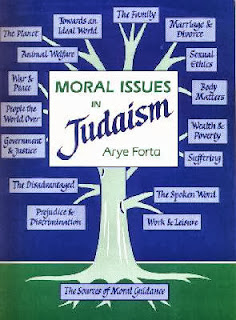Modern Judaism
Ultimately, it was the Halakah (the law) that divided Judaism in the 19th cent. The Orthodox hold both the written law (Scriptures) and the oral laws (commentaries on the legal portions of the Scriptures) as authoritative, derived from God, while the Reform do not see them as authoritative in any absolute sense, but binding only in their ethical content. While Orthodox Jews maintain the traditional practices, Reform Jews perform only those rituals that they believe can promote and enhance a Jewish, God-oriented life. In 1999, however, leaders of American Reform Judaism reversed century-old teachings by encouraging but not enforcing the observance of many traditional rituals."historical school," or Conservative movement, attempts to formulate a middle position between Orthodox and Reform, maintaining most of the traditional rituals but recognizing the need to make changes in accordance with overriding contemporary considerations. Conservative Jews believe that the history of Judaism proves their basic assumptions: that tradition and change have always gone hand in hand and that what is central to Judaism and has remained constant throughout the centuries is the people of Israel (and their needs), neither the fundamentalism of Orthodoxy nor what they consider the abandonment of traditions by Reform. The related Reconstruction’s movement of Mordechai M. Kaplan holds Judaism to be a human-centered rather than a God-centered religious civilization.Also part of contemporary Judaism are the several Sephardic traditions maintained in Israel, France, Canada, and the United States by immigrants from the Middle East and North Africa and by European Sephardim in Europe and the Americas; the several Hasidic groups in Israel and the United States; the religious and secular Zionists in Israel and the Diaspora; the unorganized secular Jews, who maintain an atheist's or agnostic's adherence to Jewish values and culture; and those unorganized Jews who seek a religious life outside the synagogue. These many positions represent the most recent attempts at defining the "essence of Judaism," a process that has been continuous throughout the ages, variously emphasizing one of the three major components of Judaism (God, Torah, Israel) over the remaining two.
Judaism Beliefs and principles:
The Jewish religion is based on the principle that there is only one indivisible all-powerful, all-knowing and all-present God, who is fair and just and the creator of the universe and mankind. God’s law, the Torah, as given to Moses on the Mount Sinai reveals His character and His will for his children. It is the Jewish belief that God still acts in the world as it is today, and that He establishes a personal relationship with every one of His followers. It is the Jewish tradition to keep God’s laws and to bring holiness into every aspect of their lives. It is their belief that the Jews are God’s chosen people, whose responsibility is to set an example of holiness and morality to the rest of the world.The experience of Judaism is very much a community one; they consider themselves to be an integrating part of a global community. Many of the Jewish traditions are based around the family and home activities.
Being a Jew is very much a blood matter. Often, in order to be considered a Jew, a child must be born of a Jewish mother. However, sometimes the children of Jewish fathers are also considered Jews. There is substantial overlap between the cultural and religious aspects of the Jewish identity. Even if a Jew converts to a different religion, they are still considered Jews. Conversely, it is not easy to convert to Judaism, if not born into this cultural/religious setting.
Perhaps one of the most striking aspects of Jewish theology is the rejection of Christ as the Messiah, in sharp contrast to the Christian belief. It is generally accepted that Jesus was a Jew himself, most probably a Pharisee (teacher/theologian) of the more liberal wing. The facts that Jesus was crucified and no peace was established, and that there was a putative openness to discussion in synagogues (making Christ’s somewhat revolutionary concepts unsurprising) are some of the Jewish arguments for their stance on Jesus. The Jews are therefore still waiting for their Messiah. Even though Judaism is one of the oldest religions still in place today, throughout times it has been influenced by other religious currents, namely Christianity, Islam and the Bahai faith.







0 comments:
Post a Comment